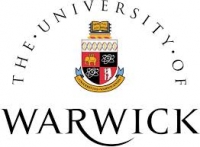






Chemistry is central to solving some of the most pressing problems facing humanity including climate change, renewable energy, health care, eliminating hunger and disease. The Department offers broad training across chemistry that will enable you to fully participate in understanding and tackling these challenges. Core material is covered in years 1 and 2 with considerable flexibility in year 3. This includes modules from within the Chemistry Department; modules from other science or language departments; Warwick Business School modules; industrial or overseas placements in Europe, the Far East, or Australia. Laboratory classes are an integral part of years 1 to 3, enhancing and developing your understanding of chemical principles. Opportunities exist for students on both BSc and MChem streams to obtain research experience under the Undergraduate Research Scholarship Scheme (URSS) in addition to the research experience MChem students get during their final year. This research experience is instrumental in not only reinforcing concepts learned in lectures and tutorials, but gives students a unique opportunity to decide if a career in research is for them. For module information please visit the course catalogue. How will I be taught? You will receive weekly tutorials and spend one or two days a week undertaking laboratory work. This is more project-oriented in your second year, culminating in a substantial individual research project in your final year. This may be wholly laboratory-based, or involve data collection or fieldwork. Purpose-built teaching facilities are fully integrated with research laboratories, facilitating opportunities for informal contact with teaching and research staff. How will I be assessed? You will be assessed using a variety of methods including tutorial, laboratory practical, oral presentation and other written assignment tests as well as exam based questions. What opportunities are there for work placements? All of our degrees can be taken with an intercalated year of salaried employment with industry or a research establishment, between second year and third year modules. Recent placements include the Assisted Reproduction Unit Walsgrave Hospital, AstraZeneca, GSK, Novartis and DEFRA. Application for placements is made at the beginning of year two. A high proportion of applicants are successful and approximately 20–30 students each year benefit from the scheme. Students join carefully monitored research projects, covering a wide range of scientific areas. They gain valuable experience in scientific writing and information technology and, in some placements, insights into legal and regulatory aspects of science, e.g. patenting, quality assurance, environmental control. Participants in the scheme remain registered students during placement and are awarded a degree ’with Intercalated Year’. What opportunities are there to study abroad? All students have the option of spending a year at a University in continental Europe under the Erasmus scheme, between your second and third year. This will add a year to your overall period of study and you will thus complete your degree in four years. Students will typically be expected to have completed at least Level 3 (or equivalent) in the target language prior to studying abroad; you can take language modules in years one and two to reach this level, which can count towards your degree if you choose.
| Number | Duration |
|---|---|
| 3 | year |
Employers prize our graduates for their knowledge and transferable skills. Your degree provides a firm basis for Professional Development in Industry or Academia and could lead to RSC Chartered Chemist (CChem) status. Many graduates undertake higher degrees in chemistry or go directly into careers in the chemical and pharmaceutical industry, the NHS or Finance; others undertake further training to become teachers or enter the medical profession.